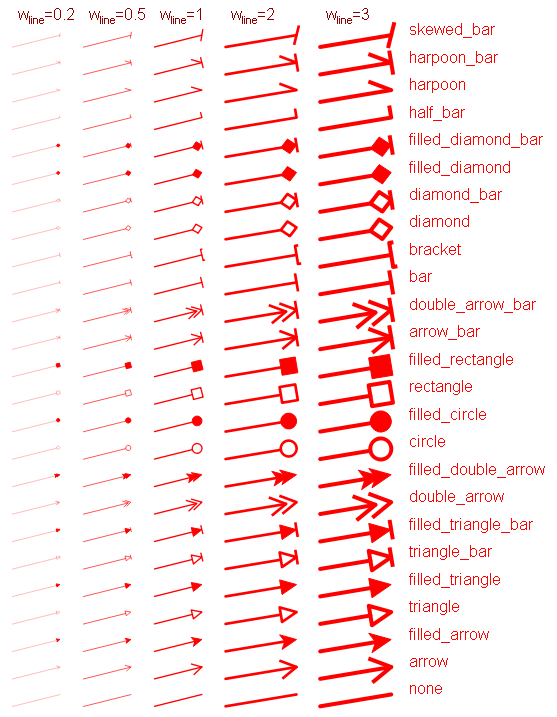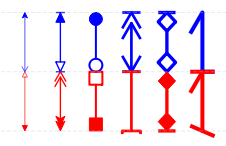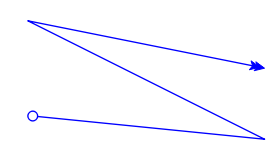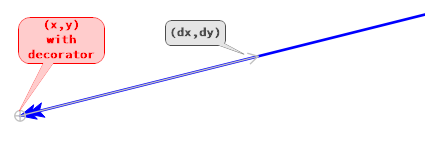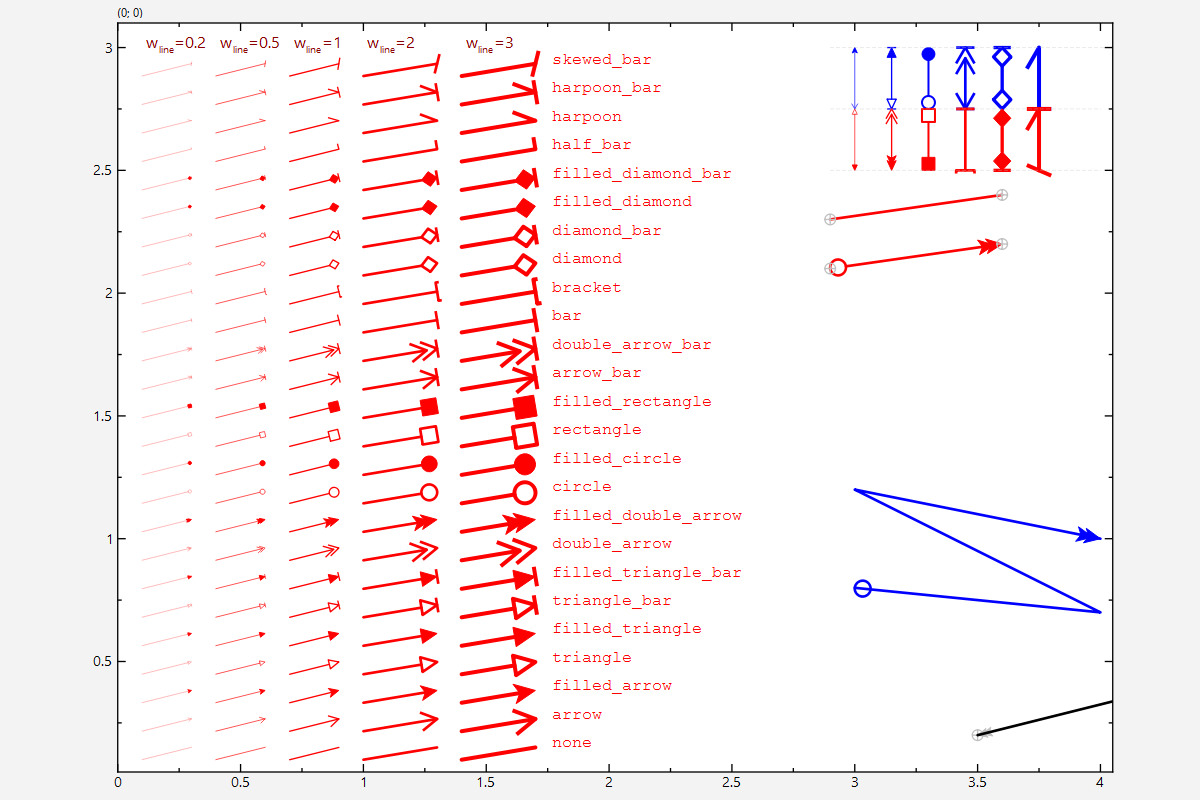| .. | ||
| CMakeLists.txt | ||
| geo_arrows_and_lib.pro | ||
| geo_arrows.cpp | ||
| geo_arrows.pro | ||
| README.md | ||
Example (JKQTPlotter): Plotting Arrows
This project shows the capabilities of JKQTPlotter to also draw arrows as geometric elements, using JKQTPGeoArrow. The arrow head/tail are defined by the enum values in JKQTPLineDecoratorStyle.
The source code of the main application can be found in geo_arrows.cpp. First a plot is generated. Then several types of arrows are plotted onto the JKQtPlotter.
Different types of arrows
A first table shows all available arrow tips in different sizes.
for (size_t i=0; i<static_cast<size_t>(JKQTPLineDecoratorCount); i++) {
auto const decor=static_cast<JKQTPLineDecoratorStyle>(i);
plot.addGraph(a=new JKQTPGeoArrow(&plot, 0.1, arr_y, 0.3, arr_y+0.05, decor, JKQTPNoDecorator));
a->setStyle(QColor("red"), 0.2);
plot.addGraph(a=new JKQTPGeoArrow(&plot, 0.4, arr_y, 0.6, arr_y+0.05, decor, JKQTPNoDecorator));
a->setStyle(QColor("red"), 0.5);
plot.addGraph(a=new JKQTPGeoArrow(&plot, 0.7, arr_y, 0.9, arr_y+0.05, decor, JKQTPNoDecorator));
a->setStyle(QColor("red"), 1);
plot.addGraph(a=new JKQTPGeoArrow(&plot, 1.0, arr_y, 1.3, arr_y+0.05, decor, JKQTPNoDecorator));
a->setStyle(QColor("red"), 2);
plot.addGraph(a=new JKQTPGeoArrow(&plot, 1.4, arr_y, 1.7, arr_y+0.05, decor, JKQTPNoDecorator));
a->setStyle(QColor("red"), 3);
plot.addGraph(new JKQTPGeoText(&plot, a->getX2()+0.05, a->getY2(), "\\verb{"+JKQTPLineDecoratorStyle2String(decor)+"}", 12, a->getLineColor()));
arr_y+=arr_deltay;
}
Here is the resulting table:
Note how the head-size scales with the line-width, but not linearly, but rather sub-linearly, so the tips do not grow too strongly.
Also note that all arrows end at the designated line-end (here indicated by dashed grey lines), even circles and rectangle:
Classes with support for arrows
You can use JKQTPGeoArrow and JKQTPGeoLine to draw arrows (JKQTPGeoArrow is just a convenience class that enables arrows by default, otherwise it is equal to JKQTPGeoLine).
In addition, also other classes can show line-decorators:
- JKQTPGeoLine
- JKQTPGeoPolyLines
- JKQTPGeoInfiniteLine .
Here is an example of how to actiavate them for a JKQTPGeoPolyLines:
QVector<QPointF> points; points<<QPointF(3, 0.6)<<QPointF(4, 0.5)<<QPointF(3, 1.2)<<QPointF(4, 1.0);
JKQTPGeoPolyLines* polyLine=new JKQTPGeoPolyLines(&plot, points);
polyLine->setHeadDecoratorStyle(JKQTPFilledDoubleArrow);
polyLine->setTailDecoratorStyle(JKQTPCircleDecorator);
plot.addGraph(polyLine);
Here is the result:
For the class JKQTPGeoInfiniteLine the start can be decorated with an arrow (only if two_sided==false!):
JKQTPGeoInfiniteLine* infLine=new JKQTPGeoInfiniteLine(&plot, 1.5, 0.2, 1, 0.25);
infLine->setHeadDecoratorStyle(JKQTPFilledDoubleArrow);
plot.addGraph(infLine);
Here is the result:
Screenshot
The result of the complete example looks like this:
